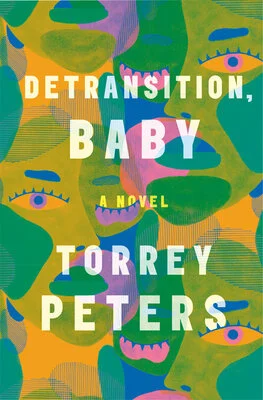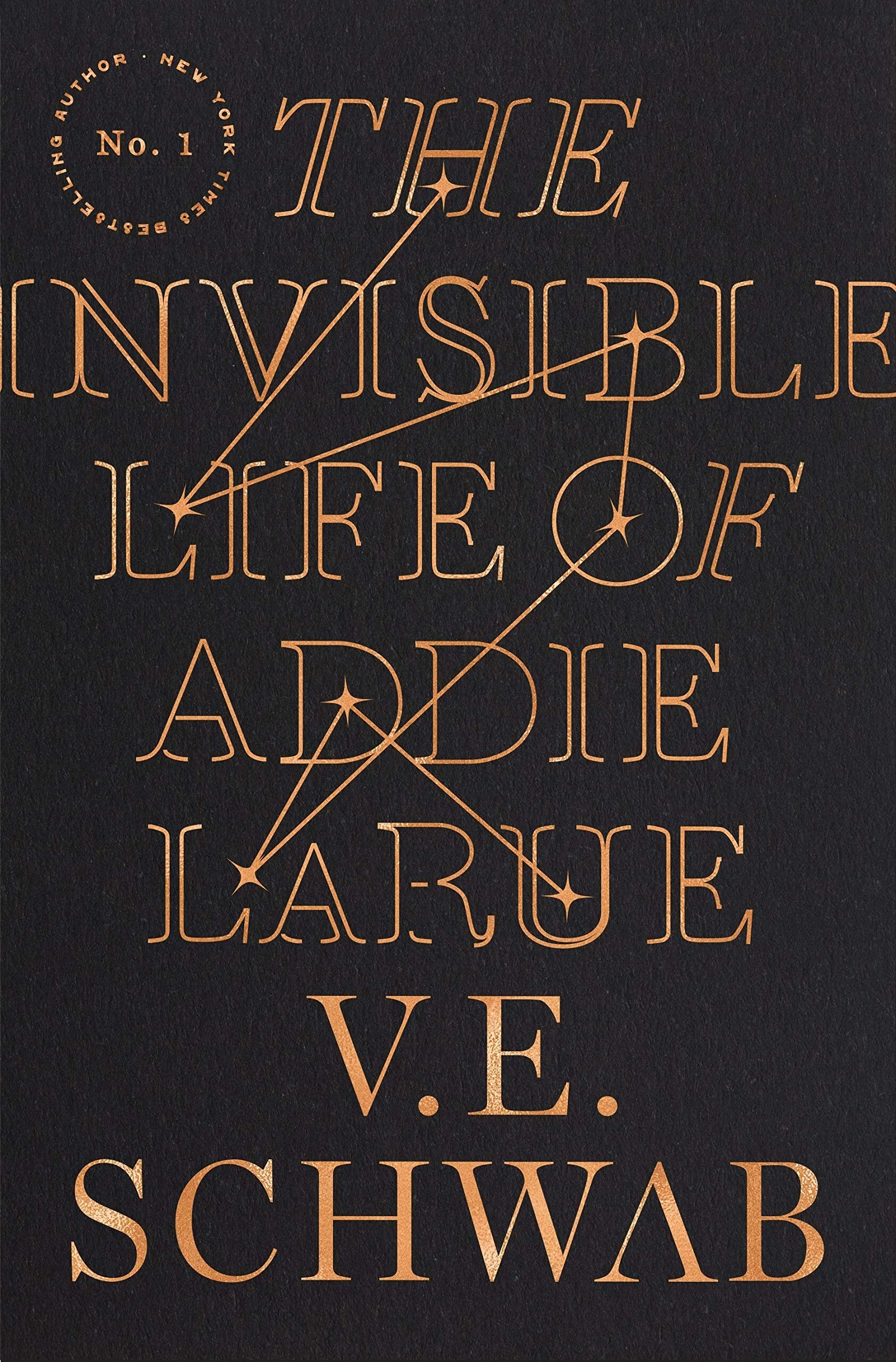Detransition, Baby by Torrey Peters
Title: Detransition, Baby
Author: Torrey Peters
Published: 2020
Type: Fiction
Pages: 340
Sure, a lot of women I know wonder if they do want a child, but not why. It's assumed why. The question cis women get asked is: Why don't you want kids? And then they have to justify that. If I had been born cis, I would never even have had to answer these questions. I wouldn't have had to prove that I deserve my models of womanhood. But I'm not cis. I'm trans. And so until the day that I am a mother, I'm constantly going to have to prove that I deserve to be one. That it's not unnatural or twisted that I want a child's love. Why do I want to be a mother? After all those beautiful women I grew up with, the ones who chaperoned my classes on field trips, or made me lunch when I was at their house, or sewed costumes for all the little girls that I ice skated with — and you too, Katrina, for that matter — have to explain their feelings about motherhood, then, I'll explain mine. And do you know what I'll say? Ditto.
In Brief:
This book was totally engrossing – hilarious, thoughtful, compassionate, insightful, smart. I couldn’t put it down, and absolutely loved the examination of woman/mother -hood.
Rating: 4.75
Synopsis:
Detransition, Baby revolves around three characters: Ames, who lived for years as a trans woman named Amy, before detransitioning back to live as a man; Katrina, a divorced, mixed-race/white-passing cis woman who is Ames’s girlfriend and boss, and who doesn’t initially know about Ames’s past; Reese, a trans woman who desperately wants to be a mother, who is also Ames’s ex-girlfriend.
The catalyzing event is as dramatic as these complicated, intertwined profiles: Ames gets Katrina pregnant. This shouldn’t be possible because most trans women become sterile due to hormone replacement therapy, and Katrina is nearly forty, but it happens. Katrina is very unsure about keeping the pregnancy, and Ames is very unsure about whether he can fulfill the traditional role of fatherhood. So Ames suggests something unconventional – that they bring Reese into the mix, and the three of them raise the child together.
From there, the book becomes more of a character study, particularly on Ames and Reese: their past, their relationship, their innermost thoughts. There isn’t really a plot so much as a question: Will Katrina keep the baby?
Where I’m At:
There’s a quote from the book that I think actually best describes where I was coming from:
All my white girlfriends automatically assume their reproductive rights are about the right not to have children, as if the right and naturalness of motherhood is presumptive. But for lots of other women in this country, the opposite is true. Think about black women, poor women, immigrant women. Think about forced sterilization, about the term “welfare queens” or “anchor babies.” All of that happened to enforce the idea that not all motherhoods are legitimate.
I think and care and speak a lot about a woman’s right to choose, feel outrage when I see restrictive abortion laws passed (I also feel relieved to be living in California). I think and care and speak a lot about the fact that not every woman has to want to be a mother, that it doesn’t make her any less of a woman and shouldn’t be belittled.
So there’s a flip side that I often forget, wrapped up in myself. I’m young, white, cis, financially secure, healthy, etc. If I changed my mind, if I decided I want to have kids, it’s likely that I easily could. I even had the ridiculous opportunity of freezing my eggs for free in order to preserve that opportunity, the chance to change my mind down the road.
Not every woman has that privilege. And of course, the “right to choose” should extend beyond abortion, or a choice not to have children at all – it should include the choice for all women to have them, too. This book was a worthwhile reminder of that fact.
So, that’s me and motherhood. As a cis woman, I also hardly ever thought of detransitioning before reading this book – my understanding is that it’s a hot button topic even in the queer community, but that’s not to say it doesn’t happen. So I appreciate Peters for running straight at it.
Lastly, just noting that I read this at the same time as Felix Ever After, a YA book about a trans teenager (we had a YA-themed book club at work) – I don’t recommend it and don’t plan on writing a review, but I’m sure that colored my reading a bit – the painfulness of transitioning, as well as detransitioning. (I also read it at the same time as A Swim in a Pond in the Rain, which is less relevant but very very good – I’m not planning on writing a review on either, so I just wanted to plug a recommendation anyway.)
Getting Into it:
So this was easily one of the best books I’ve read so far this year. I just enjoyed myself so thoroughly when I read it – found myself entirely sucked in, needing to know what happened next even with the lack of a plot. I felt like I was learning something new, gaining additional perspective and empathy, which is just such a wonderful part about reading.
I don’t think the book could have been written by a cis author, but nor is it exclusive to the trans community – one review I saw noted something like “Peters’s writing cares about the cis reader without catering to them,” which I thought was impressively executed throughout. Peters took on this difficult subject, this complicated story, these deeply flawed characters, all with such deep compassion and thoughtfulness and intelligence, which I found breathtaking. Yet, I didn’t get the sense that she took herself too seriously, evident by the many laughs the pages elicited.
Many of those laughs came from wry, darkly incisive observations supplied by Reese. For example:
It was as though they had decided to speak like the couple in that famous Hemingway story… both much too stoic to ever refer directly to anything but their drinks as their unborn child slowly sucks the air from a room.
...Looking back at it, maybe that’s not so funny. But I laughed. Let’s not unpack what that says about me.
Anyways, let’s get into the characters. Like I said, there isn’t much of a plot to the book – it’s a character-driven novel. That’s not everyone’s cup of tea, but it’s certainly mine. One challenge to character-driven novels is keeping the pace moving, making things happen even when things aren’t really happening at all – really, most of the book is just hand-wringing and angst over the decision – but I think Peters handled that challenge masterfully.
Another challenge, when so much emphasis is put on the characters, is to make those characters interesting enough to get the reader invested, make the reader care – but also make sure the characters are still believable, make sure they have flaws.
To this end, Peters made an interesting choice – she didn’t make her characters all that likable. (Of course, I don’t know for sure that this was a choice, but it’s just so obvious I can’t imagine it was an oversight on her part.) Reese is absolutely insufferable for most of the book, flat-out mean and self-absorbed. Ames is frustratingly evasive, meek, whiny. Katrina is the least fleshed-out character, but comes across as uncomfortably voyeuristic about queerness, often displaying performative, shallow wokeness.
And yet! Somehow, I still cared. I was totally fascinated by these people, rooted for them even as they drove me crazy. I think this took a lot of real skill on Peters’s part – really taking a loving, empathetic stance on these characters, going deep into their psyches to explain without apologizing for their behavior. To be fair, it worked less well on Katrina, who doesn’t get a perspective (chapters alternate between Reese and Ames). I also had some mixed feelings about the decision to make Katrina mixed race – it seemed like maybe Peters just felt she needed to have a non-white character, and she thought that making her Asian would be the least complicated. I felt uncomfortable with that, though I also don’t know if I’d’ve been happier if the whole cast was white. I also understand that one book can only do so much, and including race more deeply would have turned it into something else, which maybe Peters didn’t feel inclined or prepared to do. It did seem like the right choice to make the main trans characters white, like Peters herself, given that trans women of color, especially Black trans women, have a whole extra set of persecutions that a white trans woman probably couldn’t capture.
Beyond that – I just loved the way that the book unflinchingly grappled with all kinds of difficult questions (sex, relationships, marriage, transitioning, appearance, gender, identity, friendship, aging, family, motherhood…) then came away with graceful and beautifully nuanced responses, challenging binaries of all types. There’s a comparison between divorce and being trans – not something that I’m totally sure worked for me, but I’m neither divorced nor trans, so maybe I can’t weigh in. Something about failing at womanhood, starting over. Peters even dedicated the book to divorced cis women.
Divorce is a transition story. Of course, not all divorced women go through it. I’m talking about the ones who felt their divorce as a fall, or as a total reframing of their lives. The ones who have seen how the narratives given to them since girlhood have failed them, and who know there is nothing to replace it all. But who still have to move forward without investing in new illusions or turning bitter—all with no plan to guide them. That’s as close to a trans woman as you can get. Divorced women are the only people who know anything like what I know.
What else? One of the few critiques of the writing I have is that Peters maybe got a bit carried away sometimes – Roxanne Gay described it as “indulgent” in her review, which seems fitting. Still, I sort of enjoyed those indulgences – there were dramatic, declarative paragraphs that I found just delightful, even if unnecessary:
Among the queers of Brooklyn, it will become a generally agreed-upon story that the first truly beautiful beach day of the season was ruined when a certain pale, aging, once-popular, still-haughty trans woman traumatized an entire community by throwing herself into the freezing waters of the Atlantic Ocean to drown a la Virginia Woolf in full sight of everyone who had just come for a good time.
So – strong recommend for this book. It’s also worth mentioning it’s one of the first books by a trans author to be published by one of the big publishing houses, and so Peters’s first one as well (beyond some novellas she self-published) – I’m really excited to read whatever she writes next.






